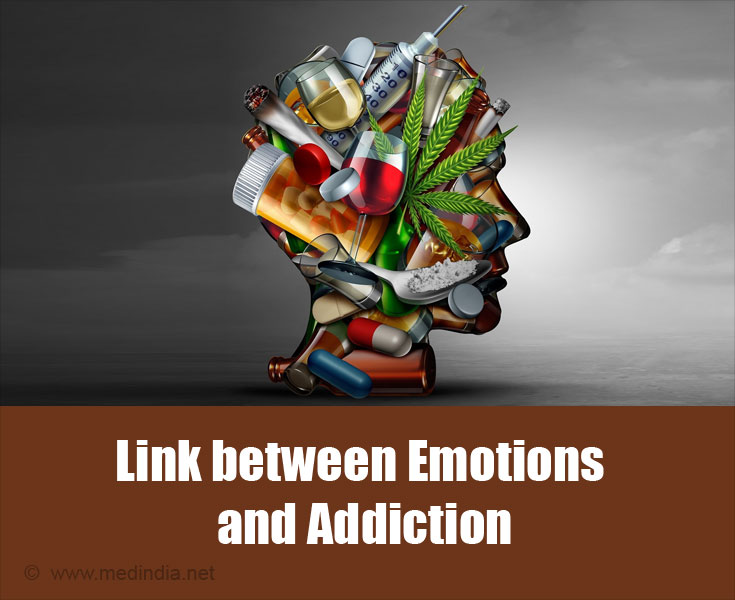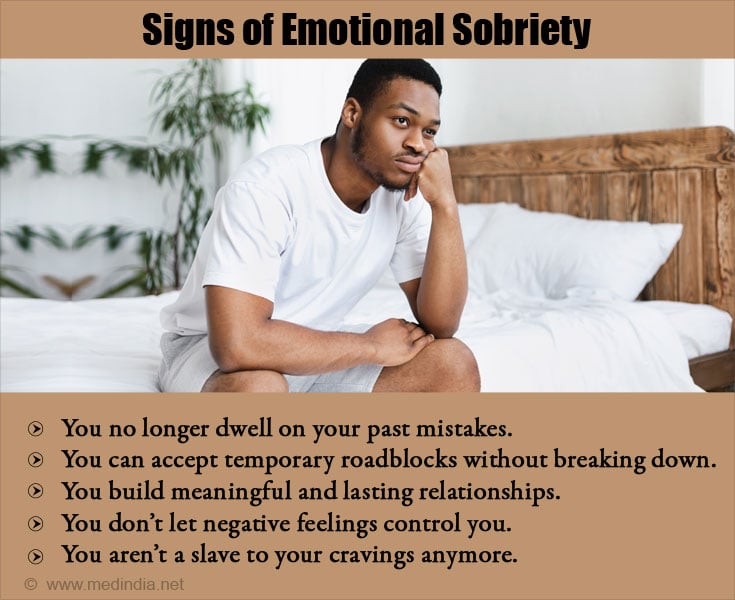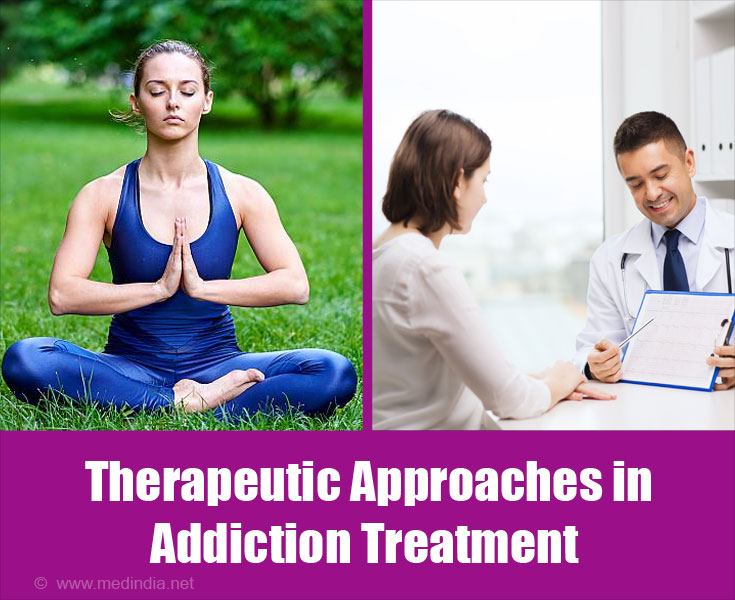What Is Emotional Sobriety?
'˜Surrender to what is. Let go if what was. Have faith in what will be.'
Emotional sobriety is less about the quality of the feeling ("good" or "bad") and more about the general ability to feel one's feelings.
Being restored to sanity isn't about getting the brass ring-or cash and prizes-or being "happy, joyous, and free" all the time, but it is more about being in the present moment, whatever it happens to look like. What are you experiencing right now? Can you be present to all of your feelings without any one of them defining you? Can you be emotionally sober without swaying towards depression or anger?
Sometimes emotional sobriety is about tolerating what you are feeling and staying sober to what you are feeling. It means that you don't have to blame yourself or your program because life can be challenging. It means that you don't necessarily need to do something to make the feeling go away.
Many people will take their feeling that make them feel bad and try to overcome it by praying, meditating or they try to get distracted by chanting a mantra thinking that this way it would go away.
Emotional sobriety can be more difficult to define and harder to achieve. Being emotionally sober involves being aware of your emotions, the good and the bad, and allowing yourself to feel them.
Physical sobriety: And then there is also something called 'physical sobriety' and this is fairly straightforward: giving up addiction like to drugs, smoking, chewing tobacco and/or alcohol. Physical and emotional sobriety overlap when it comes particularly to the feelings and emotions attached to using drugs, smoking and alcohol. Sometimes when we are recovering from an emotional trauma we could be using drugs or alcohol to overcome the bad feelings. But this relief is temporary and true, lasting sobriety requires that we acknowledge the emotions, even when they are horrible and upset us.
The goal of emotional sobriety is to enable you to handle a whole range of feelings in a positive way, without turning to substance abuse as a method to cope. It means achieving emotional balance and being able to remain calm and steady in the face of difficult times.
Emotions and our feelings are dynamic and constantly changing and this implies that if we are able to be emotionally sober we will always be happy and will no longer be victims of our own emotions.
Emotional sobriety is less about the quality of the feeling ("good" or "bad") and more about the general ability to tolerate what you is feeling, even if it is negative or unpleasant.
Physical Sobriety and Emotional Sobriety
People tend to manage stressful situations by either distracting themselves or focusing on the problem. Distraction is an effective technique for physical sobriety, partly because it is an attainable goal and the experience is strong. For long-term emotional sobriety, however, distraction denies the addicted person access to important tools for learning, processing, and growth.
Cognitive disengagement helps the addicted person ward off the intense cravings that accompany physical sobriety. Emotional sobriety takes attention. Fortunately, humans appear to be hardwired for it.
Engaging with mildly negative emotions helps you process and interpret them. Coping skills emerge through learning, not avoidance. In early stages, avoidance can help get you through rough times. As emotional recovery continues, exposure helps you defend against relapse.
Physical and emotional sobrieties are two vastly different things. A person can eliminate the addicting substance and achieve physical sobriety, but remain emotionally addicted. Fortunately, recovery is not a pass-or-fail endeavour.
Emotional sobriety opens doors for you to learn from experience. Just as the journey toward good health or even spiritual enlightenment is never finished, the journey toward freedom from addictive substances is ongoing. Emotional sobriety is a lifelong pursuit.
'˜Your life does not get better by chance it gets better by change.'
The Link between Emotions and Addiction
People who are actively abusing drugs or alcohol often struggle to manage their emotional lives.
They may exhibit the following traits:

- Trouble regulating intense negative emotions such as anger
- Acting out in impulsive or dangerous ways when faced with emotionally challenging situations
- Struggling to maintain intimate connections with others
- Being unable to "roll with the punches" when encountering obstacles at work or home
- Having a generally pessimistic view of the world
Developing emotional sobriety often involves several different activities such as:
- Working with a therapist to process emotional ups and downs as they happen
- Making a journal or writing in diary or a blog to better understand personal feelings
- Learning how diet, exercise, and sleep habits can affect your mood
- Building strong and emotionally honest relationships with friends and family
- Finding hobbies and meaningful activities that provide a way to deal with stress
- Practicing mindful meditation
- Exploring spirituality
For individuals with a dual diagnosis that involves a mental health disorder such as depression or anxiety, medication may be recommended to reconfigure the brain chemistry. Medication isn't a shortcut to emotional sobriety, however. It's just one small part of a comprehensive treatment plan.
As with other aspects of the recovery process, it's important to be learn to be have patience with yourself. Breaking old habits isn't at all easy. You can expect ups and downs along the way, but you will start to gradually notice that your overall outlook towards life is becoming more balanced.
How do you Know If you are Emotionally Sober?
People who are emotionally sober typically display it with outward behaviours and actions. Here are five clear signs that you are emotionally sober (or are well on your way to getting there).
- You no longer dwell on your past mistakes.
- You can accept temporary roadblocks without breaking down.
- You build meaningful and lasting relationships.
- You don't let negative feelings control you.
- You aren't a slave to your cravings anymore.

Addiction Recovery Path neither Linear nor Straight
The path to recovery is not linear, in the sense of getting incrementally better every single day. There may be days when you stay sober, but it is really hard. That does not mean you are not making progress.
Progress is often a spiral, meaning you may have to revisit people, situations, and emotions that are difficult for you. When you fully commit yourself to emotional sobriety, the spiral goes upward, and over time you develop the skills to cope better with the difficulties life will inevitably present.
It generally comes down to:
- Maintaining a healthy emotional balance
- Accepting reality as it is today, in the moment
- Not dwelling on regrets or wishes
Achieving this involves learning how to deal with emotions in a healthy way.
There are many therapeutic approaches in addiction treatment that can help, such as:
- Cognitive behavioural therapy programs
- Somatic therapies
- Yoga
- Individual counselling
- Group therapy

'˜The capacity of emotional sobriety belongs to everybody in the human family and leads to a fully human response to the adventure and goodness of the gift of human life.' ~ Thomas Keating







